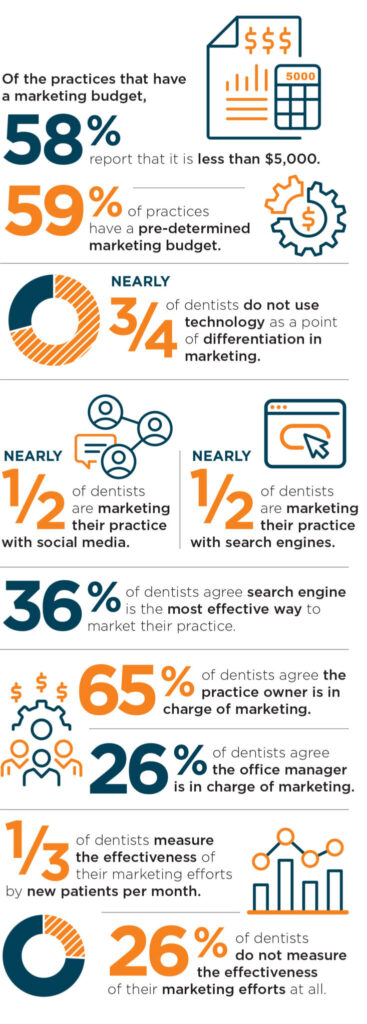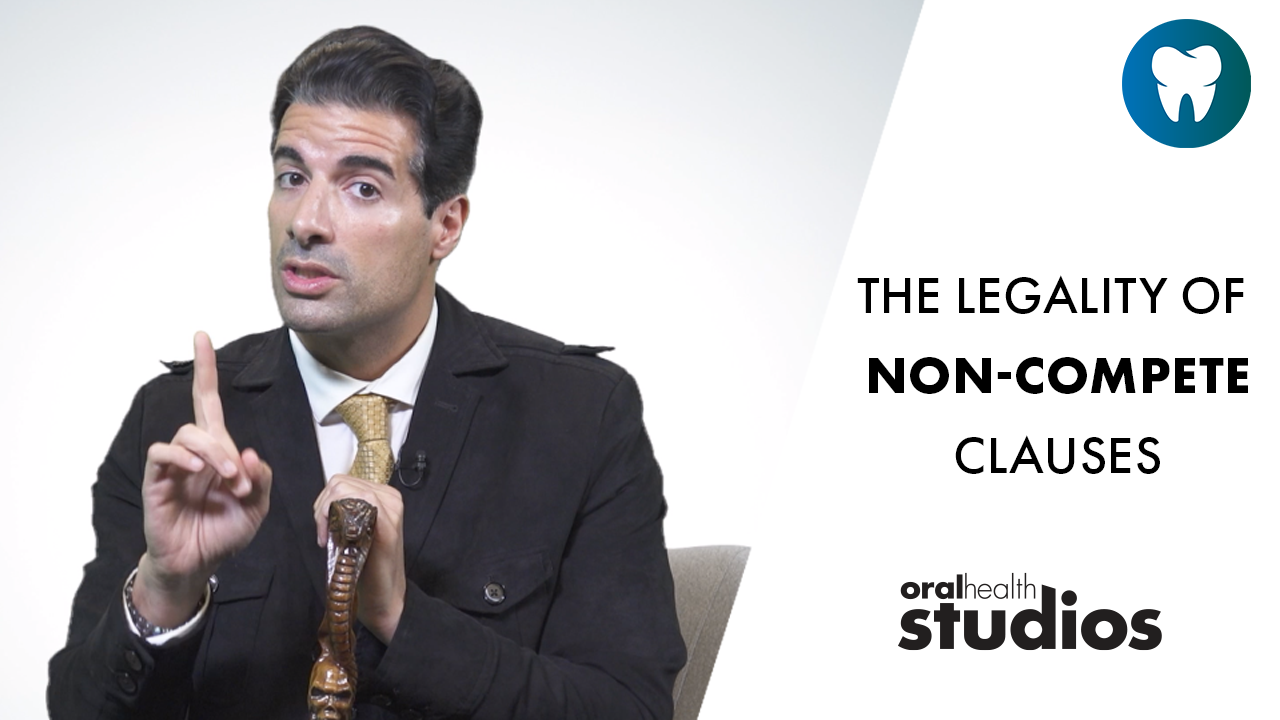
Most practice owners are in charge of their own marketing. But should that be the case?
On top of clinical cases and other business duties, taking on the task of marketing is a lot to have on your plate as an owner dentist. If you find yourself overworked and overwhelmed, this is an area to consider delegating to another team member, such as an office manager, or working with a trained marketing professional. While this may lead to additional expenses for your practice, it could be worth it in the long run. For example, if you are one of the 26% of dentists who are not measuring the effectiveness of your marketing efforts, you may be putting time and money into tactics that are not even paying off. A marketing professional will have the time and knowledge to measure the results and find the most effective strategies for your specific marketing needs. Here are a few tips for the dentists that want to stay involved in their marketing:
- Come up with a strategy before you start deciding on tactics. Depending on your specific practice goals, certain marketing channels may be better suited than others (Ex. Social media vs direct marketing).
- For the dentists that are not measuring their marketing efforts, create benchmarks and start tracking your results! Benchmarks could be new patients per month, followers or engagement on social media, or referrals per month.

As seen in the print issue of Oral Health April 2024
In October and November 2023 Bramm Research, a third-party independent research house, conducted an online survey of active, practicing non-hospital affiliated dentists and dental specialists on behalf of Oral Health. Survey invitations went out to a contact list of approximately 9,000 readers and there were 265 completions, for a response rate of 2.9 With a total sample of 265, the margin of error is plus or minus 5.9 percentage points at the 95 percent confidence level. If, for example, 50% of the sample indicated that agreed with a statement, then we can be reasonably sure (19 times out of 20) of an accuracy within +/- 5.9%. This means that a total census would reveal an answer of not less than 44.1% and not more than 55.9%.
Sponsored by











